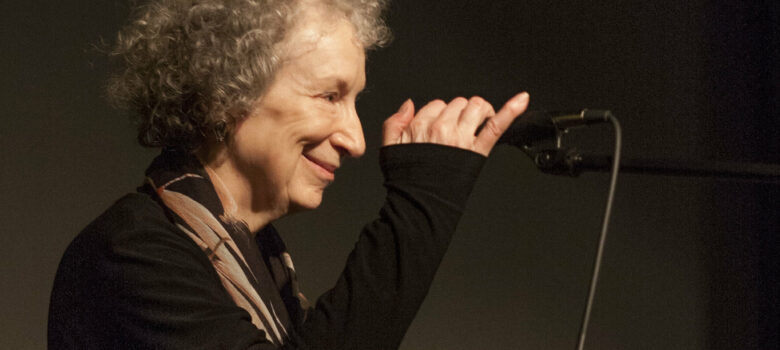Margaret Atwood, the famed Canadian author, has been the target of a predictable backlash for her comments criticizing Bill C-11. Her comments, which came in the aftermath of Senator David Adams Richards forceful denunciation of the bill on the Senate floor, describe the bill as “well meaning”, but express concern about the uncertainty over how it will be interpreted, the role of government officials in determining what counts as Canadian, and the secrecy associated with the CRTC. The reaction has led to columnists suggesting she’s speaking nonsense and one writer group calling her comments “misguided and uninformed”. Yet the reality is that Atwood’s comments are consistent with longstanding criticisms raised by many stakeholders. So why the backlash?
Take each of the three key points Atwood raises. First, that there is uncertainty about how the bill will be implemented has literally been a source of concern from the first day that Bill C-10, the predecessor to Bill C-11, was introduced. My post that day focused primarily on the uncertainty associated with a bill that failed to define many key terms, did not contain thresholds, and left much of the decision-making to the CRTC. More than two years later, not much has changed. The Globe ran a story on the uncertainty for streaming services just last week and digital first creators have been raising alarm bells about how the CRTC regulatory powers could be interpreted for months. The government consistently rejected attempts to provide greater clarity with the bill and insisted that its forthcoming policy direction be kept secret until after the bill receives royal assent. If there is criticism to bear about Bill C-11’s uncertainty, it should be directed in the direction of Heritage Minister Pablo Rodriguez, not Margaret Atwood.
Second, the concerns about what counts as Canadian has attracted enormous attention, particularly in light of the House version of Bill C-11 applying to user content. That raised the question of how to define what counts as Canadian among YouTubers, TikTokers, podcasters, and millions of other Canadians whose content could be caught by the legislation. Atwood and Richards are again absolutely right to raise the concern about the risks associated with governments determining what counts and what doesn’t, which by virtue of the discoverability rules in the bill, turns into what content may be prioritized and what content gets de-prioritized. Creators should be uncomfortable with those risks and it is shameful that so many have remained silent on the issue.
Third, I would not have thought that concerns about the CRTC would be particularly controversial. In fact, on the same day that the Atwood article appeared in the Globe, Canadian Heritage Minister Pablo Rodriguez and Industry Minister François-Philippe Champagne wrote to new CRTC Chair Vicky Eatrides to acknowledge that “public confidence and trust in the CRTC has waned in recent years” and to urge greater transparency in its decision making processes.
Given that Atwood’s comments are consistent with public debate about Bill C-11, why the harsh criticism? Some of it may stem from perceived overreach in the framing of Senator Richards speech and Atwood’s references to Soviet-style censorship (there are serious problems with the bill but this is not Stalin’s Russia or Nazi Germany). Some may arise from fear from the bill’s supporters that prominent creators are also speaking out against it as they remain silent.
But perhaps most notable is that many creators have been facing this backlash for months with respect to public engagement on Bill C-11. As has been widely reported, when indigenous creators met with officials in Rodriguez’s office to discuss their concerns with the bill last fall, they walked away feeling intimidated and gaslit. The creators noted they were fearful of ever speaking to the government again. The incident involving indigenous creators was not an outlier. Some of Canada’s most successful digital creators were ignored by Rodriguez, while others have reported similar hostility from officials, who repeatedly dismiss their concerns as misinformation. In fact, some Liberal MPs on the Standing Committee on Canadian Heritage even sought a lobbyist commissioner investigation of one of the bill’s critics. The investigation was swiftly terminated as being without merit, but investigating your critics is the precisely the kind of government action that has echoes with the fears of Atwood and Richards.
That is the real warning from the legislative journey of Bill C-11, where efforts to speak out were met with months of gaslighting from the Minister and disinterest (or worse) from MPs. It took independent Senators such as Simons and Miville-Dechêne to finally craft a solution. We will soon learn whether the government is open to fixing the bill or insists on regulating user content and in doing so, ignores the concerns and warnings of creators that range from indigenous TikTokers to some of Canada’s best known authors. Regardless of that decision, the message that criticism of government cultural policy are unwelcome has been heard loud and clear, which makes Atwood’s warnings all the more essential.








Unfortunately, Ms. Atwood’s opinion is hidden behind a pay/login-wall and so cannot be freely read.
“…but this is not Stalin’s Russia or Nazi Germany *YET*.”
FTFY
More policy for a few Liberal party donors to the detriment of everyone else.
Using digital ID to access the the internet because of “age verification” is the control that tyrants dream of
More policies benefiting a few Liberal party funders at the expense of everyone else.